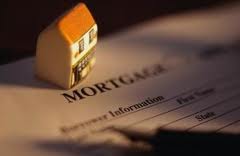PMI Mortgage Insurance
How To End Your Private Morgtage Insurance Earlier
PMI or private mortgage insurance, is a safety net for borrowers. PMI benefits lenders because it guarantees payment on the balance of the loan is not protected by the flood of property sales. |
| Private Mortgage Insurance |
If you purchase the house with some conventional mortgage and a down-payment is less than 20 percent, PMI as a requirement is almost be a must. insurance benefits lenders, but borrowers pay for this. An initial premium is included in the monthly charges, and the number of payments in the house.
PMI costs vary depending on the size and the percentage of mortgage payments. If the payment is more than 15 percent but less than 20 percent, the borrower will typically pay about 0.32 percent of the loan amount annually in PMI premiums. which amounts to about $ 40 a month to $ 150,000 mortgage.
But PMI is not a fool-proof. Home owners could anytime eliminate private mortgage insurance by refinancing into their othe loan , even if they continuing lend more than 80 percent of the value of the house. And there is a new law that requires lenders to remove the PMI if the mortgage does not exceed 80% of the value of the home. However, the new law only applies to loans recorded after July 29, 1999. If the borrower has a loan that was recorded prior to July 29, 1999, and thought that he might want to cancel the mortgage insurance after a few years, he may, depending on condition and whether if the insurer allows cancellation, you know what i mean right?
The most commonly used method to avoid paying private mortgage insurance is for the borrower to get a "piggyback loan system" - the second mortgage which allows to make a 20 percent payment. For example, a borrower can pay the state 10% down, getting a first mortgage of 80 percent, and a second mortgage of 10 percent. piggyback loan system is always at a higher speed. the borrower does not pay for PMI, but still making monthly payments, probably for about the same amount as PMI. piggyback loan system also has the advantage of income tax because it allows borrowers to cut interest rates from their particular earnings calendar. However, he was not able to reduce the cost of PMI.
For homeowners who owe between 80 and 83 percent of the value of the home, the best way to avoid PMI when refinancing a loan is to find a lender who does not immediately sell mortgages in the secondary market. Generally, in order to eliminate PMI, which must overcome the tight mortgage and flawless payment history can match a particular profile of the borrower. Examples of good candidates include:
> Overcoming the tightness that refinancing into a mortgage and never late payment in the past year or two.
> Someone who is barely more than 80 percent PMI threshold. (Eg, if he owes $ 85,000 on the $ 100,000 home, he may not be able to break on PMI, but the person who owes $ 82,000 perhaps.)
> Overcoming the tightness of otherwise decent - have high credit scores, stable ayub, and the good of the income debt ratio.
Even with these credentials, address tight should strive to find a mortgage lender who keep the books and be willing to take the risk. Most companies do not hold the mortgage borrower for the loan term. They package mortgages together and sell them to big investors like big banks, insurance companies, pension funds and institutions such as the Federal National Mortgage Association, known as Fannie Mae.
Reason for selling is to clear mortgage money to lend again because the original lender the most money (and profit) of the cost and sales of loans, instead of interest rates. Investors who bought the lake-interest loan borrowers end up getting paid.
PMI assure investors that bundle of loans they are not bad. The house owner is less than 20 percent more likely to default down. That is why they are required to have private mortgage insurance. If not, the loan, which will not be sold.
No comments:
Post a Comment